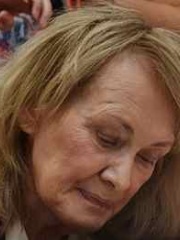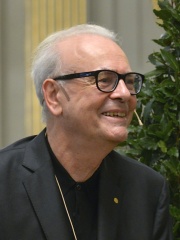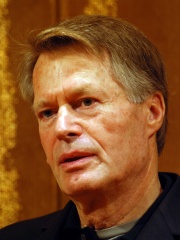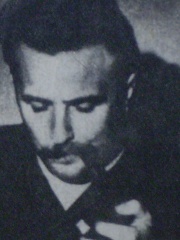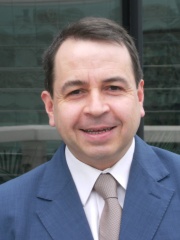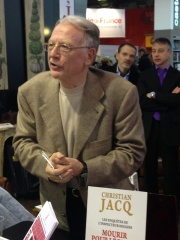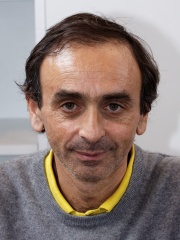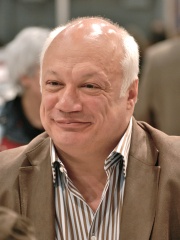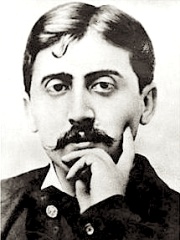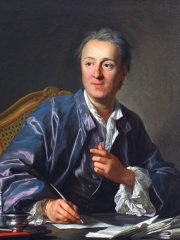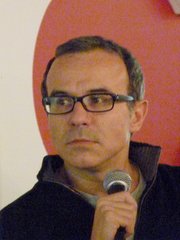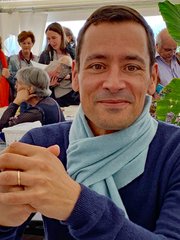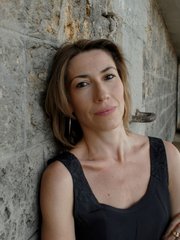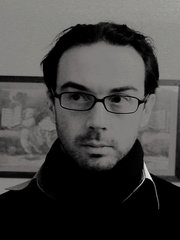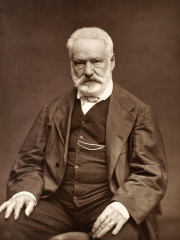
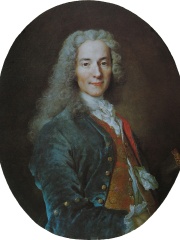
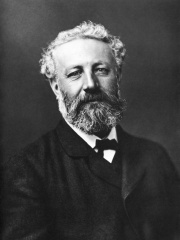
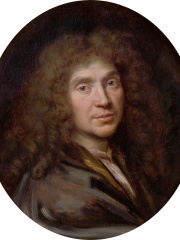
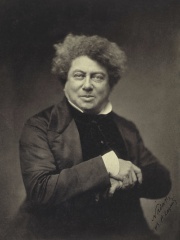
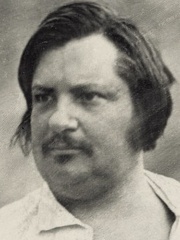
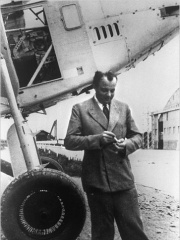
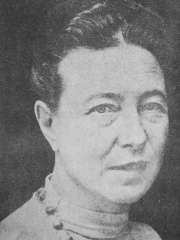
The Most Famous
WRITERS from France
This page contains a list of the greatest French Writers. The pantheon dataset contains 7,302 Writers, 687 of which were born in France. This makes France the birth place of the 3rd most number of Writers behind United States, and United Kingdom.
Top 10
The following people are considered by Pantheon to be the top 10 most legendary French Writers of all time. This list of famous French Writers is sorted by HPI (Historical Popularity Index), a metric that aggregates information on a biography's online popularity. Visit the rankings page to view the entire list of French Writers.

1. Victor Hugo (1802 - 1885)
With an HPI of 89.52, Victor Hugo is the most famous French Writer. His biography has been translated into 179 different languages on wikipedia.
Victor-Marie Hugo, vicomte Hugo (French: [viktɔʁ maʁi yɡo] ; 26 February 1802 – 22 May 1885) was a French Romantic author, poet, essayist, playwright, journalist, human rights activist and politician. His most famous works are the novels The Hunchback of Notre-Dame (1831) and Les Misérables (1862). In France, Hugo is renowned for his poetry collections, such as Les Contemplations and La Légende des siècles (The Legend of the Ages). Hugo was at the forefront of the Romantic literary movement with his play Cromwell and drama Hernani. His works have inspired music, both during his lifetime and after his death, including the opera Rigoletto and the musicals Les Misérables and Notre-Dame de Paris. He produced more than 4,000 drawings in his lifetime, and campaigned for social causes such as the abolition of capital punishment and slavery. Although he was a committed royalist when young, Hugo's views changed as the decades passed, and he became a passionate supporter of republicanism, serving in politics as both deputy and senator. His work touched upon most of the political and social issues and the artistic trends of his time. His opposition to absolutism, and his literary stature, established him as a national hero. Hugo died on 22 May 1885, aged 83. He was given a state funeral in the Panthéon of Paris, which was attended by over two million people, the largest in French history.

2. Voltaire (1694 - 1778)
With an HPI of 89.44, Voltaire is the 2nd most famous French Writer. His biography has been translated into 174 different languages.
François-Marie Arouet (French: [fʁɑ̃swa maʁi aʁwɛ]; 21 November 1694 – 30 May 1778), known by his nom de plume Voltaire (, US also ; French: [vɔltɛːʁ]), was a French Enlightenment writer, philosopher (philosophe), satirist, and historian. Famous for his wit and his criticism of Christianity (especially of the Catholic Church) and of slavery, Voltaire was an advocate of freedom of speech, freedom of religion, and separation of church and state. Voltaire was a versatile and prolific writer, producing works in almost every literary form, including plays, poems, novels, essays, histories, and even scientific expositions. He wrote more than 20,000 letters and 2,000 books and pamphlets. Voltaire was one of the first authors to become renowned and commercially successful internationally. He was an outspoken advocate of civil liberties and was at constant risk from the strict censorship laws of the Catholic French monarchy. His polemics witheringly satirized intolerance and religious dogma, as well as the French institutions of his day. His best-known work and magnum opus, Candide, is a novella that comments on, criticizes, and ridicules many events, thinkers and philosophies of his time, most notably Gottfried Leibniz and his belief that our world is of necessity the "best of all possible worlds".

3. Jules Verne (1828 - 1905)
With an HPI of 88.32, Jules Verne is the 3rd most famous French Writer. His biography has been translated into 125 different languages.
Jules Gabriel Verne (; French: [ʒyl ɡabʁijɛl vɛʁn]; 8 February 1828 – 24 March 1905) was a French novelist, poet, and playwright. His collaboration with the publisher Pierre-Jules Hetzel led to the creation of the Voyages extraordinaires, a series of bestselling adventure novels including Journey to the Center of the Earth (1864), Twenty Thousand Leagues Under the Seas (1870), and Around the World in Eighty Days (1872). His novels are generally set in the second half of the 19th century, taking into account contemporary scientific knowledge and the technological advances of the time. In addition to his novels, he wrote numerous plays, short stories, autobiographical accounts, poetry, songs, and scientific, artistic and literary studies. His work has been adapted for film and television since the beginning of cinema, as well as for comic books, theater, opera, music and video games. Verne is considered to be an important author in France and most of Europe, where he has had a wide influence on the literary avant-garde and on surrealism. His reputation was markedly different in the Anglosphere where he had often been labeled a writer of genre fiction or children's books, largely because of the highly abridged and altered translations in which his novels have often been printed. Since the 1980s, his literary reputation has improved. Jules Verne has been the second most-translated author in the world since 1979, ranking below Agatha Christie and above William Shakespeare. He has sometimes been called the "father of science fiction", a title that has also been given to H. G. Wells and Hugo Gernsback. In the 2010s, he was the most translated French author in the world. In France, 2005 was declared "Jules Verne Year" on the occasion of the centenary of the writer's death.

4. Molière (1622 - 1673)
With an HPI of 87.83, Molière is the 4th most famous French Writer. His biography has been translated into 163 different languages.
Jean-Baptiste Poquelin (French: [ʒɑ̃ batist pɔklɛ̃]; 15 January 1622 (baptised) – 17 February 1673), known by his stage name Molière (UK: , US: ; French: [mɔljɛʁ] ), was a French playwright, actor, and poet, widely regarded as one of the great writers in the French language and world literature. His extant works include comedies, farces, tragicomedies, comédie-ballets, and more. His plays have been translated into every major living language and are performed at the Comédie-Française more often than those of any other playwright today. His influence is such that the French language is often referred to as the "language of Molière". Born into a prosperous family and having studied at the Collège de Clermont (now Lycée Louis-le-Grand), Molière was well suited to begin a life in the theatre. Thirteen years as an itinerant actor helped him polish his comedic abilities while he began writing, combining Commedia dell'arte elements with the more refined French comedy. Through the patronage of aristocrats including Philippe I, Duke of Orléans—the brother of Louis XIV—Molière procured a command performance before the King at the Louvre. Performing a classic play by Pierre Corneille and a farce of his own, The Doctor in Love, Molière was granted the use of the grande salle of the Petit-Bourbon near the Louvre, a spacious room appointed for theatrical performances. Later, he was granted the use of the theatre in the Palais-Royal. In both locations, Molière found success among Parisians with plays such as The Affected Ladies, The School for Husbands, and The School for Wives. This royal favour brought a royal pension to his troupe and the title Troupe du Roi ("The King's Troupe"). Molière continued as the official author of court entertainments. Despite the adulation of the court and Parisians, Molière's satires attracted criticism from other circles. For Tartuffe's impiety, the Catholic Church in France denounced this study of religious hypocrisy, which was followed by a ban by the Parlement, while Dom Juan was withdrawn and never restaged by Molière. His hard work in so many theatrical capacities took its toll on his health and, by 1667, he was forced to take a break from the stage. In 1673, during a production of his final play, The Imaginary Invalid, Molière, who suffered from pulmonary tuberculosis, was seized by a coughing fit and a haemorrhage while playing the hypochondriac Argan; he finished the performance but collapsed again and died a few hours later.

5. Jean-Paul Sartre (1905 - 1980)
With an HPI of 87.31, Jean-Paul Sartre is the 5th most famous French Writer. His biography has been translated into 147 different languages.
Jean-Paul Charles Aymard Sartre (, US also ; French: [saʁtʁ]; 21 June 1905 – 15 April 1980) was a French philosopher, playwright, novelist, screenwriter, political activist, biographer, and literary critic, considered a leading figure in 20th-century French philosophy and Marxism. Sartre was one of the key figures in the philosophy of existentialism (and phenomenology). His work has influenced sociology, critical theory, post-colonial theory, and literary studies. He was awarded the 1964 Nobel Prize in Literature despite attempting to refuse it, saying that he always declined official honors and that "a writer should not allow himself to be turned into an institution." Sartre had an open relationship with prominent feminist and fellow existentialist philosopher Simone de Beauvoir. Together, Sartre and de Beauvoir challenged the cultural and social assumptions and expectations of their upbringings, which they considered bourgeois, in both lifestyles and thought. The conflict between oppressive, spiritually destructive conformity (mauvaise foi, literally, 'bad faith') and an "authentic" way of "being" became the dominant theme of Sartre's early work, a theme embodied in his principal philosophical work Being and Nothingness (L'Être et le Néant, 1943). Sartre provided an introduction to his philosophy in his work Existentialism Is a Humanism (L'existentialisme est un humanisme, 1946), originally presented as a lecture. Born in Paris, Sartre lost his father at age two and was raised primarily by his mother and grandfather, who introduced him to literature. He studied at the prestigious École Normale Supérieure, where he developed a deep interest in philosophy, influenced by thinkers like Henri Bergson, Edmund Husserl, and Martin Heidegger. Sartre's early academic career included teaching in several French lycées and engaging in provocative pranks and debates. Sartre's life was marked by strong political engagement. During World War II, he was drafted, captured, and later released, after which he co-founded the resistance group Socialisme et Liberté. Though the group dissolved, Sartre became an influential voice in occupied France, contributing to underground literature and writing plays like No Exit. After the war, he co-founded the journal Les Temps modernes and increasingly used his platform to advocate for political and social causes. He supported anti-colonial movements, condemned French policies in Algeria, opposed U.S. intervention in Vietnam, and aligned himself at various times with Marxism and Maoism. Despite declining health in his later years, Sartre remained committed to activism and intellectual debate until his death in 1980. His funeral drew 50,000 mourners.

6. Alexandre Dumas (1802 - 1870)
With an HPI of 86.83, Alexandre Dumas is the 6th most famous French Writer. His biography has been translated into 115 different languages.
Alexandre Dumas (born Alexandre Dumas Davy de la Pailleterie, 24 July 1802 – 5 December 1870), also known as Alexandre Dumas père, was a French novelist and playwright. His works have been translated into many languages and he is one of the most widely read French authors. Many of his historical novels of adventure were originally published as serials, including The Count of Monte Cristo, The Three Musketeers, Twenty Years After and The Vicomte of Bragelonne: Ten Years Later. Since the early 20th century, his novels have been adapted into nearly 200 films. Prolific in several genres, Dumas began his career by writing plays, which were successfully produced from the first. He wrote numerous magazine articles and travel books; his published works totalled 100,000 pages. In the 1840s, Dumas founded the Théâtre Historique in Paris. His father, General Thomas-Alexandre Dumas Davy de la Pailleterie, was born in the French colony of Saint-Domingue (present-day Haiti) to Alexandre Antoine Davy de la Pailleterie, a French nobleman, and Marie-Cessette Dumas, an African slave. At age 14, Thomas-Alexandre was taken by his father to France, where he was given his freedom, educated in a military academy, and entered the military for what became an illustrious career. Alexandre acquired work with Louis-Philippe, Duke of Orléans, then as a writer, a career that led to his early success. Decades later, after the election of Louis-Napoléon Bonaparte in 1851, Dumas fell from favour and left France for Belgium, where he stayed for several years. He moved to Russia for a few years and then to Italy. In 1861, he founded and published the newspaper L'Indépendant, which supported Italian unification. He returned to Paris in 1864. English playwright Watts Phillips, who knew Dumas in his later life, described him as "the most generous, large-hearted being in the world. He also was the most delightfully amusing and egotistical creature on the face of the earth. His tongue was like a windmill – once set in motion, you would never know when he would stop, especially if the theme was himself."

7. Honoré de Balzac (1799 - 1850)
With an HPI of 86.38, Honoré de Balzac is the 7th most famous French Writer. His biography has been translated into 112 different languages.
Honoré de Balzac ( BAL-zak, more commonly US: BAWL-; French: [ɔnɔʁe d(ə) balzak]; born Honoré Balzac; 20 May 1799 – 18 August 1850) was a French novelist and playwright. The novel sequence La Comédie humaine, which presents a panorama of post-Napoleonic French life, is generally viewed as his magnum opus. Owing to his keen observation of detail and unfiltered representation of society, Balzac is regarded as one of the founders of realism in European literature. He is renowned for his multi-faceted characters; even his lesser characters are complex, morally ambiguous and fully human. Inanimate objects are imbued with character as well; the city of Paris, a backdrop for much of his writing, takes on many human qualities. His writing influenced many famous writers, including the novelists Émile Zola, Charles Dickens, Marcel Proust, Gustave Flaubert, Henry James and Fyodor Dostoevsky, and filmmakers François Truffaut and Jacques Rivette. Many of Balzac's works have been made into films and continue to inspire other writers. James called him "really the father of us all." An enthusiastic reader and independent thinker as a child, Balzac had trouble adapting to the teaching style of his grammar school. His willful nature caused trouble throughout his life and frustrated his ambitions to succeed in the world of business. When he finished school, Balzac was apprenticed in a law office, but he turned his back on the study of law after wearying of its inhumanity and banal routine. Before and during his career as a writer, he attempted to be a publisher, printer, businessman, critic, and politician; he failed in all of these efforts. La Comédie humaine reflects his real-life difficulties, and includes scenes from his own experience. Balzac suffered from health problems throughout his life, possibly owing to his intense writing schedule. His relationship with his family was often strained by financial and personal drama, and he lost more than one friend over critical reviews. In 1850, Balzac married Ewelina Hańska (née Contessa Rzewuska), a Polish aristocrat and his longtime love. He died in Paris six months later.

8. Antoine de Saint-Exupéry (1900 - 1944)
With an HPI of 86.21, Antoine de Saint-Exupéry is the 8th most famous French Writer. His biography has been translated into 113 different languages.
Antoine Marie Jean-Baptiste Roger, vicomte de Saint-Exupéry (29 June 1900 – c. 31 July 1944), known simply as Antoine de Saint-Exupéry (UK: , US: , French: [ɑ̃twan də sɛ̃t‿ɛɡzypeʁi] ), was a French writer, poet, journalist and aviator. Born in Lyon to an aristocratic family, Saint-Exupéry trained as a commercial pilot in the early 1920s, working airmail routes across Europe, Africa, and South America. Between 1926 and 1939, four of his literary works were published: the short story The Aviator, novels Southern Mail and Night Flight, and the memoir Wind, Sand and Stars. Saint-Exupéry joined the French Air Force for World War II and flew reconnaissance missions until France's armistice with Germany in 1940. After being demobilised by the Air Force, Saint-Exupéry lived in exile in the United States between 1941 and 1943 and helped persuade it to enter the war. During this time, his works Flight to Arras and The Little Prince were published. Saint-Exupéry returned to combat by joining the Free French Air Force in 1943, despite being past the maximum age for a war pilot and in declining health. On 31 July 1944, during a reconnaissance mission over Corsica, Saint-Exupéry's plane disappeared: it is presumed to have crashed. Debris from the wreckage was discovered near Marseille in 2000, but the cause of the crash remains unknown.

9. Simone de Beauvoir (1908 - 1986)
With an HPI of 84.63, Simone de Beauvoir is the 9th most famous French Writer. Her biography has been translated into 133 different languages.
Simone Lucie Ernestine Marie Bertrand de Beauvoir (UK: , US: ; French: [simɔn də bovwaʁ] ; 9 January 1908 – 14 April 1986) was a French existentialist philosopher, writer, social theorist, and feminist activist. Though she did not consider herself a philosopher, nor was she considered one at the time of her death, she had a significant influence on both feminist existentialism and feminist theory. Beauvoir wrote novels, essays, short stories, biographies, autobiographies, and monographs on philosophy, politics, and social issues. She was best known for her "trailblazing work in feminist philosophy", The Second Sex (1949), a detailed analysis of women's oppression and a foundational tract of contemporary feminism. She was also known for her novels, the most famous of which were She Came to Stay (1943) and The Mandarins (1954). Her most enduring contribution to literature are her memoirs, notably the first volume, Mémoires d'une jeune fille rangée (1958). She received the 1954 Prix Goncourt, the 1975 Jerusalem Prize, and the 1978 Austrian State Prize for European Literature. She was also nominated for the Nobel Prize in Literature in 1961, 1969 and 1973. However, Beauvoir generated controversy when she briefly lost her teaching job after being accused of sexually abusing some of her students.
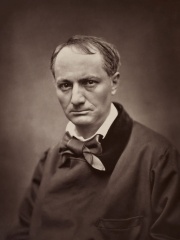
10. Charles Baudelaire (1821 - 1867)
With an HPI of 84.42, Charles Baudelaire is the 10th most famous French Writer. His biography has been translated into 106 different languages.
Charles Pierre Baudelaire (UK: ; US: ; French: [ʃaʁl(ə) bodlɛʁ] ; 9 April 1821 – 31 August 1867) was a French poet, essayist, translator and art critic. His poems are described as exhibiting mastery of rhythm and rhyme, containing an exoticism inherited from the Romantics, and are based on observations of real life. His most famous work, a book of lyric poetry titled Les Fleurs du mal (The Flowers of Evil), expresses the changing nature of beauty in the rapidly industrialising Paris caused by Haussmann's renovation of Paris during the mid-19th century. Baudelaire's original style of prose-poetry influenced a generation of poets including Paul Verlaine, Arthur Rimbaud and Stéphane Mallarmé. He coined the term modernity (modernité) to designate the fleeting experience of life in an urban metropolis, and the responsibility of artistic expression to capture that experience. Marshall Berman has credited Baudelaire as being the first Modernist.
People
Pantheon has 687 people classified as French writers born between 82 BC and 1992. Of these 687, 95 (13.83%) of them are still alive today. The most famous living French writers include Annie Ernaux, Patrick Modiano, and J. M. G. Le Clézio. The most famous deceased French writers include Victor Hugo, Voltaire, and Jules Verne. As of April 2024, 11 new French writers have been added to Pantheon including Raffaëla Anderson, Laurent Mauvignier, and Tonino Benacquista.
Living French Writers
Go to all RankingsAnnie Ernaux
1940 - Present
HPI: 77.55
Patrick Modiano
1945 - Present
HPI: 76.09
J. M. G. Le Clézio
1940 - Present
HPI: 75.61
Elif Shafak
1971 - Present
HPI: 67.28
Régis Debray
1940 - Present
HPI: 65.25
Yasmina Reza
1959 - Present
HPI: 63.64
Jean-Pierre Thiollet
1956 - Present
HPI: 63.64
Christian Jacq
1947 - Present
HPI: 63.47
Emmanuel Carrère
1957 - Present
HPI: 63.41
Fred Vargas
1957 - Present
HPI: 63.34
Éric Zemmour
1958 - Present
HPI: 63.31
Éric-Emmanuel Schmitt
1960 - Present
HPI: 63.04
Deceased French Writers
Go to all RankingsVictor Hugo
1802 - 1885
HPI: 89.52
Voltaire
1694 - 1778
HPI: 89.44
Jules Verne
1828 - 1905
HPI: 88.32
Molière
1622 - 1673
HPI: 87.83
Jean-Paul Sartre
1905 - 1980
HPI: 87.31
Alexandre Dumas
1802 - 1870
HPI: 86.83
Honoré de Balzac
1799 - 1850
HPI: 86.38
Antoine de Saint-Exupéry
1900 - 1944
HPI: 86.21
Simone de Beauvoir
1908 - 1986
HPI: 84.63
Charles Baudelaire
1821 - 1867
HPI: 84.42
Marcel Proust
1871 - 1922
HPI: 84.39
Denis Diderot
1713 - 1784
HPI: 84.31
Newly Added French Writers (2025)
Go to all RankingsRaffaëla Anderson
1976 - Present
HPI: 49.16
Laurent Mauvignier
1967 - Present
HPI: 49.15
Tonino Benacquista
1961 - Present
HPI: 49.06
Vanessa Springora
1972 - Present
HPI: 48.48
Philippe Besson
1967 - Present
HPI: 48.19
Jean-Baptiste Andrea
1971 - Present
HPI: 47.62
Nina Bouraoui
1967 - Present
HPI: 44.93
Amanda Filipacchi
1967 - Present
HPI: 42.88
Gwenaëlle Aubry
1971 - Present
HPI: 41.75
Maxence Caron
1976 - Present
HPI: 38.18
Faïza Guène
1985 - Present
HPI: 37.12
Overlapping Lives
Which Writers were alive at the same time? This visualization shows the lifespans of the 25 most globally memorable Writers since 1700.

